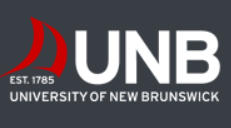
BA in French
University of New Brunswick, Saint John
Study Abroad
IELTS
Sign in
Sign Up


University of New Brunswick, Saint John

BA in French
University of New Brunswick, Saint John
It is a top-ranked institution in Canada
Degree
Undergraduate
Duration
48
Course Type
With Co-op
Co-op education gives you real-world experience in a job related to your studies.
INR
11.82L
USD 13902
1st Year Tuition Fees
Opening Soon